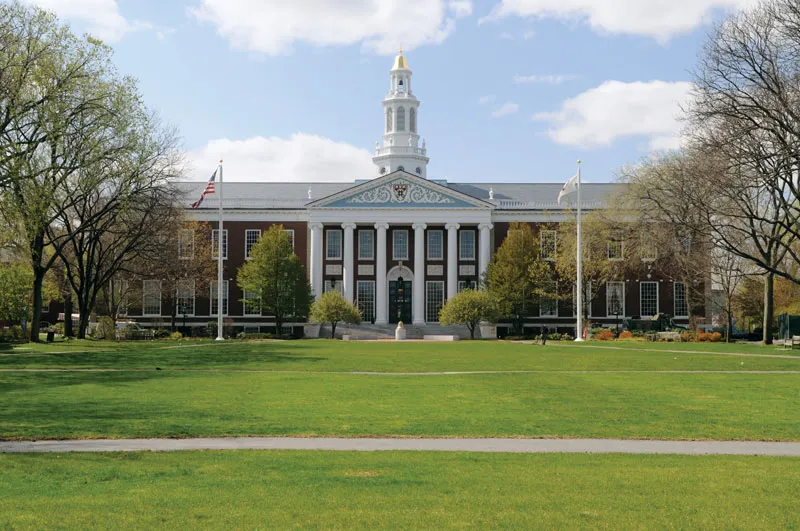Harvard University in Hot Water: Funding Freeze Sparks National Outcry
In an unprecedented move that’s making headlines across the globe, the Trump administration has frozen a staggering $2.2 billion in federal grants and $60 million in contracts allocated to Harvard University. This drastic action comes as a direct consequence of Harvard’s refusal to comply with a set of federal mandates issued by the White House aimed at reshaping university governance and combating campus antisemitism.
The issue has ignited a heated debate over academic freedom, political influence, and constitutional rights, with critics and supporters both weighing in on the historic decision. The development not only raises concerns about the role of federal power in education but also sets the stage for a legal and ideological battle between the government and one of the most prestigious universities in the world.
Harvard University’s Stance on DEI and Governance Reform
The core of the conflict lies in the Trump administration’s demands for sweeping reforms, including the elimination of Diversity, Equity, and Inclusion (DEI) programs, cooperation with federal immigration checks on international students, a ban on face masks during protests, and restructuring of student organizations.
Harvard University, under the leadership of interim President Alan Garber, has firmly rejected these requirements, claiming they infringe on institutional independence and First Amendment rights. In an official statement, Garber emphasized that Harvard remains committed to combating antisemitism, but “will not bow to politically motivated attempts to dictate university policies.”
University officials argue that many of the mandates violate Title VI of the Civil Rights Act, which prohibits discrimination based on race, color, or national origin. They claim that imposing restrictions on DEI programs and enforcing federal oversight on hiring practices undermine the very principles on which the institution stands.

Harvard’s $2.2 Billion Funding Frozen: What’s at Stake?
The announcement that Harvard’s $2.2 Billion Funding Frozen sent shockwaves across the academic world. The funding freeze includes both research grants and programmatic funding that supports various educational and scientific initiatives. Departments across science, technology, medicine, and humanities are now at risk of losing critical resources needed for ongoing and future research.
Critics of the freeze argue that such a move is an attack on academic freedom, potentially setting a precedent where federal funding is used as leverage to control educational content and campus culture. “This is not about antisemitism. It’s about control,” said one anonymous faculty member. “It’s a message to all higher education institutions—fall in line or face the consequences.”
Meanwhile, White House officials have defended the move, asserting that taxpayer dollars should not fund institutions that “turn a blind eye to hate speech or refuse to follow federal law.” The administration contends that Harvard’s resistance to cooperation in immigration screenings and its support of DEI initiatives have allowed “ideological radicalization” to flourish on campus.
Campus Reaction and National Fallout
The decision has triggered a wave of reactions from across the country. Harvard students, faculty, and alumni have taken to social media and national platforms to voice outrage and concern. Protests erupted on campus shortly after the announcement, with demonstrators waving signs such as “Education is Not for Sale” and “Stop Political Policing.”
The American Association of University Professors (AAUP) has condemned the action, labeling it a “dangerous encroachment on institutional autonomy” and urging other universities to stand in solidarity with Harvard. Alumni from across the globe are mobilizing to provide alternative funding streams to counterbalance the freeze, with several high-net-worth individuals already pledging support.
Political analysts view the administration’s actions as part of a larger strategy to reshape the cultural and ideological landscape of higher education. By targeting elite institutions like Harvard, the Trump administration is signaling a broader crackdown on what it perceives as left-leaning academic establishments.
Legal Battle Brewing Over Harvard’s $2.2 Billion Funding Frozen
Legal experts predict that Harvard University’s next move will likely be a courtroom battle. The university is reportedly preparing to file a federal lawsuit arguing that the funding freeze constitutes an unlawful retaliation for exercising constitutional rights.
“It’s a textbook case of viewpoint discrimination,” says constitutional law professor Martha Reynolds. “The government is punishing Harvard for not adopting its ideological stance, which violates the First Amendment.”
There is also concern that the freeze could embolden similar actions against other Ivy League institutions. Already, Princeton and the University of Pennsylvania are under scrutiny for their handling of similar federal mandates.
As the legal process unfolds, the funding freeze remains in place, placing Harvard’s research programs, student aid, and faculty initiatives in jeopardy.
The Bigger Picture: Education or Enforcement?
The implications of Harvard’s $2.2 Billion Funding Frozen go far beyond Cambridge, Massachusetts. It touches on fundamental questions about who gets to shape the policies of academic institutions: the universities themselves, or the federal government?
While some conservative groups applaud the decision as a long-overdue accountability measure, many in the academic community fear it could mark the beginning of a new era of political interference in education.
As the nation watches the battle between the Trump administration and Harvard University unfold, one thing is clear—this is no longer just a story about funding. It’s a clash of ideologies, a fight over the soul of higher education, and a precedent that could reshape the academic landscape for decades to come.
Conclusion
The Trump administration’s move to freeze $2.2 billion in funding for Harvard University has ignited a fierce debate over political influence, academic freedom, and constitutional rights. As lawsuits loom and protests intensify, all eyes remain on what will come next in this high-stakes standoff.

